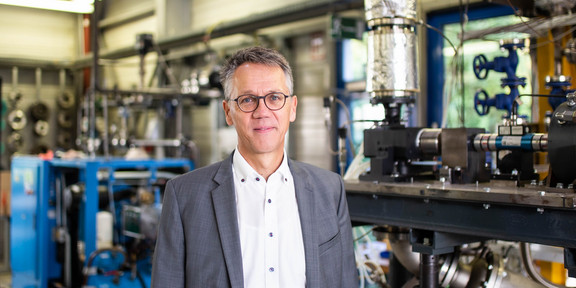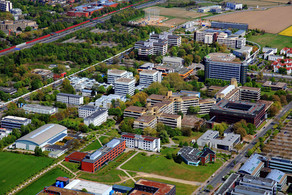Basic Research for More Efficient Heat Pumps
- TU News

Heat pumps can both heat and cool living spaces and, when operated with renewable energy, are also more environmentally friendly than gas heaters. However, heat pumps cannot yet be fully optimized in terms of their energy efficiency. This is primarily because the behavior of the oil-refrigerant mixtures commonly used in operation in the compressor of a heat pump is not yet precisely understood on a thermodynamic level. This is where the work of the new research group 5595 with the title “Oil-refrigerant multiphase flows in columns with moving boundaries – novel microscopic and macroscopic approaches to experimentation, modelling and simulation”, or “Archimedes” for short, led by Chemnitz University of Technology comes into play: The result will be a new calculation model for designing compressors, which will ultimately increase the energy efficiency of heat pumps and refrigeration machines.
Understanding the exact behavior of a mixture of lubricating oil and refrigerant in the compressor of a heat pump or refrigeration machine is particularly challenging in thermodynamics and fluid dynamics: “Factors such as pressure and temperature change the thermophysical behavior and, by extension, the flow behavior, which ultimately has an impact on the heating and cooling performance,” explains research group spokesperson Prof. Markus Richter from Chemnitz University of Technology. “In this basic research project, we will be the first to precisely determine the thermophysical properties of oil-refrigerant mixtures and, using this as a basis, develop easily applicable equations of state as well as models for viscosity and thermal conductivity.” This is an important building block in optimizing heat pumps.
Simulating flow behavior in high resolution
Prof. Andreas Brümmer, Head of the Chair of Fluidics at the of Department of Mechanical Engineering at TU Dortmund University and co-speaker of the research group, adds: “In order to develop a comparatively simple calculation model for the flow behavior of oil-refrigerant mixtures in compressor gaps, we require precise information about how these fluid mixtures behave thermodynamically. Building upon this, we characterize the flow behavior on a macroscopic level using laser-optical methods and on a microscopic level using high-resolution numerical simulations.”
The research projects are set to begin in 2024. In addition to the Chemnitz University of Technology and TU Dortmund University, TU Dresden, Friedrich-Alexander-Universität Erlangen-Nürnberg, the Karlsruhe Institute of Technology, the Ruhr-Universität Bochum and RWTH Aachen are involved in the research group.
Contact person for queries:




